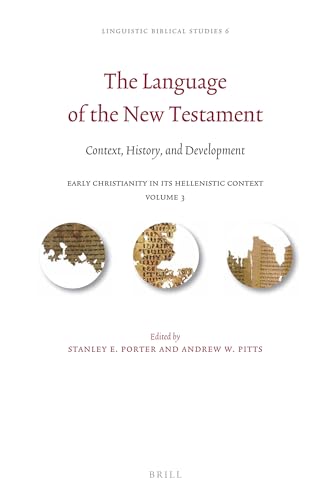The Christian Century and the Rise of the Protestant Mainline
Written by Elesha J. Coffman Reviewed By Seth BarteeIt is almost impossible to speak of Elesha Coffman’s monograph, The Christian Century and the Rise of the Protestant Mainline (TCC hereafter), without addressing the upsurge of recent scholarship on liberal Christianity in the United States. Recent books include David Hollinger’s After Cloven Tongues, Matthew Hedstrom’s The Rise of Liberal Religion, David Swartz’s Moral Minority: The Evangelical Left in an Age of Conservatism, and Andrew Preston’s Sword of the Spirit, Shield of Faith: Religion in American War and Diplomacy. The increase in literature has been so astounding that The New York Times even dedicated space to all of the new activity. (See Jennifer Schuessler, “A Religious Legacy, with Its Leftward Tilt, Is Reconsidered,” The New York Times, July 23, 2013, available at http://www.nytimes.com/2013/07/24/books/a-religious-legacy-with-its-leftward-tilt-is-reconsidered.html?_r=1&.)
This apparent resurgence may come as a surprise to readers of Themelios because American evangelicals have become accustomed to being both the brunt and willing subjects of scholarly investigation. Various evangelical epochs from the Jesus Movement (Gary Dorrien), Francis Schaeffer (Barry Hankins), and Bible-thumping religious migrants (Darren Dochuck) have been appraised by academic historians. It seems possible that given the nearly constant stream of scholarship concerning evangelicalism, that the bulk of research represented a de facto kind of victory for conservative Christians.
It is precisely the largesse of literature concerning conservative evangelicals that makes Coffman’s TCC stand out. TCC is one of those books that can be described and studied from a multitude of angles, although Coffman calls it a “cultural history” (p. 7). TCC could also be classified as an intellectual history of the Protestant mainline through one of its primary scholarly outlets. In eight chapters and an introduction, Coffman explains how the Protestant mainline came to the status of a religious establishment through the early history of its popular magazine, The Christian Century. Coffman’s most intriguing claim is that the Protestant mainline was never primarily built on numbers but cultural capital. By cultural capital Coffman means that the mainline was led primarily by Caucasian men who studied at elite higher education institutions, and acquired a host of academic skills to boost their influence (pp. 13–14). In short, they were WASPs (White-Anglo-Saxon-Protestants).
In the first chapter, Coffman addresses how The Christian Century, once called the Christian Oracle, earned cultural capital. The story begins with editor, Charles Clayton Morrison, who took The Christian Century from a nominal source to a magazine of great importance. Coffman is quick to explain that The Christian Century’s power was not merely ideational, but was also product of “cultural entrepreneurs,” and socially progressive Protestants who took steps to make The Christian Century an important intellectual circle (p. 31).
The Century’s readership did not just expand because of its progressive-mindedness either. In the third chapter, Coffman reveals that the magazine grew as Morrison spurred readers to share The Century with like-minded people, even using prizes such as cars and vacations to Europe to encourage spreading the word (p. 9). The fourth chapter continues to explore the way in which commonality defined the readership of The Christian Century. “This attraction to sophisticated and intellectually rigorous Christianity, far more than mere membership in the seven mostly Northern denominations later grouped together under the label ‘mainline,’ gave this small, elite group a distinctive identity,” Coffman wrote (p. 109).
The remainder of TCC is mostly concerned with, not so much how the mainline lost its cultural capital, but how the mainline has adapted to various challenges including consumerism and the mass appeal of evangelicalism embodied in the likes of Billy Graham. According to Coffman, the intelligentsia of the mainline did not understand the attraction of Graham and Christianity Today because “they constructed their authority on the basis of popular support and actual capital rather than cultural capital.” (p. 184)
In the seventh chapter, “The Contested Center,” Coffman offers one of her most important insights, which is that liberal Protestants “viewed unchecked consumerism with the same horror as their more conservative contemporaries viewed godless communism” (p. 194). The result of these beliefs, the author states, is that it cost mainliners greatly because they underestimated both the force of mass communication and the resilience of fundamentalism. In other words, mainline intellectuals believed that populism was dead following the progressive era.
actice may be swinging back towards the mainline again.
Coffman’s work is most valuable, as alluded to earlier, through the prism of cultural and intellectual history. Religious historians will especially find this book appealing as many of the millennials are now exploring High Church Protestantism for the first time. Historians who are researching American conservatism will also find this book worthwhile because Coffman explores the complex tropes of tradition and consensus of America in the middle of the twentieth century. In fact, TCC would be most useful in a comparative analysis between competing types of traditions on the Left and Right following the Second World War.
Seth Bartee
Seth Bartee
Virginia Tech
Blacksburg, Virginia, USA
Other Articles in this Issue
Too often people think of the Reformation in terms of an abstract theological debate...
Abstract: Evangelical Faith and the Challenge of Historical Criticism, edited by Christopher Hays and Christopher Ansberry, argues that evangelical scholars have failed to embrace historical criticism to the extent that they could and should...
Thomas Prince, editor of The Christian History—the first religious periodical in American history—could hardly have invented the Great Awakening, as Frank Lambert argues...
Theology is first and foremost about who God is and then about what he has done...
I would like to consider several elements in reviewing Bray’s work...






